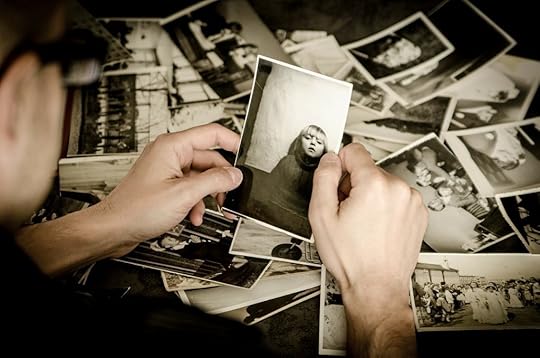Sharing Our Experiences With Our Kids

“It wasn’t like that for us.”
Why do we so often tell our stories in a way that our children end up feeling guilty or burdened? I’ve seen this in action in the three generations that have coexisted in our home: my mother-in-law, who is now in her 80s; my husband and me in our 50s; and my children, who are in their late 20s.
“You were born with a golden spoon in your mouth,” my mother-in-law often says to my husband. “It was not like that for us. We immigrated to this country with little in our pockets, and we struggled to give you the comforts that you have today.” When I asked my husband how that made him feel, he said, “My mom always says that! It makes me feel bad. Like they sacrificed their whole life for me.”
Of course we Baby Boomer parents tell our Millennial children, “You are lucky that we were involved and interested in all of your events. You didn’t have to work during high school, you get to pick careers around your passion, and you don’t have the responsibilities of a family or a home yet. It wasn’t like that for us. Our parents hardly ever showed up at our school events, we worked all through high school and took whatever jobs came our way to meet serious responsibilities when we were your age. ”
When I asked my kids how those comments made them feel, my son answered, “It makes me feel guilty. Like you had a tougher life than us.” My daughter responded,
“Why do you guys say that? I’ve talked to a couple of friends about this, and it really makes us feel bad—like you had to have a tough life to give us a good one.”
Yes, it seems each generation has passed down the exact same message: “I struggled; you didn’t. You have a better, easier life than I had. How lucky you are!”
Just the other day, I heard my Millennial daughter say to her 13-year-old cousin— my Generation Z niece—“What! You spent two hours with your mom and saw all your pictures and videos since birth! Lucky you. It wasn’t like that for us. It would take us ten days to dig up all the albums and play all the mini-videocassettes. My parents don’t have footage for my whole life. There are gaps where it is obvious that they got busy and forgot. We don’t have digital footprints like you guys do. Consider yourself lucky! ”
But my clever niece didn’t feel guilty at all. She said, “Well, that’s not my fault. Technology has advanced that much. I’m just part of whatever is in the air right now.”
She’s right. We do become part of whatever is in the air. What we experience depends on the age we grow up in. Each generation focuses on advancement. We all ask, “How can I improve on this? How can I make life a little easier and more efficient?
That is simply human nature. With each generation, as we grow intellectually and emotionally, we change our physical world. That is the nature of life—always in flux, always changing, always advancing. That is the way it is supposed to be. We are supposed to keep growing, changing, and learning. As William Burroughs said, “When you stop growing, you start dying.”
So, parents and grandparents, please think twice about how you share your struggles and experiences with the next generation. Tell your story not with a complaint but with a “Wow, look how much we have grown or evolved. Look at what we are capable of.” This will inspire young children to understand the importance of human potential. It will open their mind to understand the possibility of change, to accept it rather than resist it. With our attitude and choice of words in sharing our experiences, we can either uplift the next generation or weigh it down. Which would you rather have?
The post Sharing Our Experiences With Our Kids appeared first on Tools of Growth.



